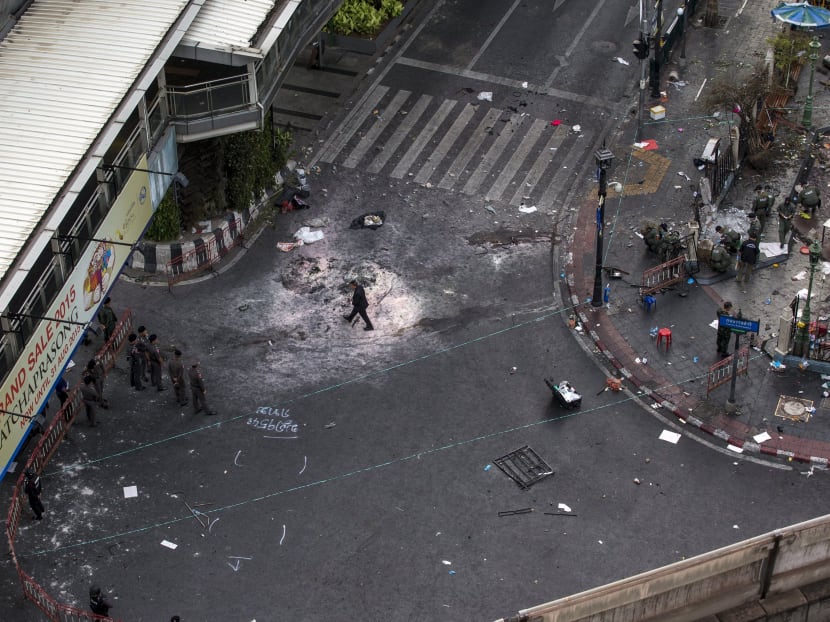Thai stocks drop most in 19 months on Bangkok attack; Baht falls
BANGKOK — Thai stocks headed for their biggest loss since January 2014 and the baht dropped after an explosion in Bangkok killed at least 22 people and put the nation’s tourism industry at risk.


BANGKOK — Thai stocks headed for their biggest loss since January 2014 and the baht dropped after an explosion in Bangkok killed at least 22 people and put the nation’s tourism industry at risk.
The benchmark SET Index slid 2.7 per cent at 10:01 am in Bangkok. A gauge of tourism-related stocks sank 7.9 per cent, heading for its biggest loss in four years. The baht dropped as much as 0.8 per cent to the lowest level since April 2009, before trading 0.5 percent down at 35.536 per dollar.
Yesterday’s night-time explosion in Bangkok’s central shopping district is the first major attack in the capital since the military seized power last year. Hospital officials are treating 117 people, many of whom are foreigners, according to the Emergency Medical Institute of Thailand. Tourism accounts for 10 per cent of the nation’s economy, which slowed last quarter amid weak local demand and exports.
The blast will “definitely have a negative impact on equities, the currency and the overall economy,” said Mr Andrew Stotz, chief executive officer of Bangkok-based A. Stotz Investment Research and former head of research for Thailand at CLSA Ltd. “Thailand is vulnerable right now as economic growth and corporate earnings are weak.”
The SET Tourism and Leisure Index climbed 5.5 per cent in the previous six months, compared with an 11 per cent decline by the broader gauge.
TOURISTS KILLED
The blast during rush hour left body parts scattered on Ratchaprasong intersection, which is surrounded by malls, hotels and the Erawan Hindu shrine frequented by tourists and locals. The dead included Chinese and Filipino visitors. The military government blamed people seeking to destroy the tourist-reliant economy and said security officials have identified suspects behind the attack.
UBS Group AG said that while the “tragic” event won’t have a long-lasting impact on the economy or investor sentiment, rising non-performing loans and slowing growth make the nation’s stocks are unappealing.
“We are underweight in Thailand and see no incentive to revisit the market,” said Mr Adrian Zuercher, the Hong Kong-based head of Asia asset allocation at UBS. “Growth is extremely weak, undershooting expectation by a wide margin, and there is no real sign of improvement. We are in particular concerned about the jump in NPLs.”
The finance ministry in July cut forecasts for exports and gross domestic product growth for a third time this year. A factory output index has fallen every month but one since March 2013, while exports have declined each month this year.
“This tragic news just adds to the poor fundamentals of Thailand,” said Ms Sue Trinh, senior currency strategist at Royal Bank of Canada in Hong Kong. “There were many issues tied to the Thai baht” before this happened, Ms Trinh said, adding that she’s sticking with an underweight call on the currency. BLOOMBERG





